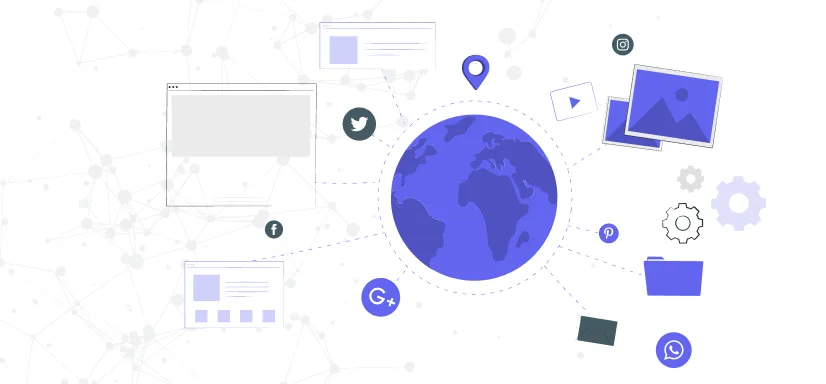- Customer Experience
How Artificial Intelligence Is Changing the Customer Experience


If there's one emerging technology that's truly disrupting the modern world, it's AI. Indeed, programs or machines that can automatically complete tasks, and even learn on their own, are taking the world by storm. Accordingly, Markets and Markets predicts that global spending on AI is expected to increase from USD 58 billion to USD 308 billion between 2021 and 2026 alone.
Though AI was born and developed largely in America, engineers across the world are constantly becoming more proficient in emerging technology. In fact, AI expert Dr. Kai-Fu Lee writes in AI Superpowers that along with Silicon Valley, Chinese engineers have caught up rapidly to create a powerful AI duopoly. This hot U.S.-Sino competition is naturally spurring significant innovation in the field –– and as a result, AI has been able to penetrate multiple industries ranging from government and healthcare to construction and telecommunications.
With regard to consumer-facing enterprises, AI helps to streamline multiple internal processes and enhance the customer experience. If you're a B2C company looking to use AI though, you might be wondering how exactly it enhances a customer's journey with your brand. Below are a few advantages worth keeping in mind.
Deeper Insights Into Your Customers
The modern digital age involves people all over the world producing data that amounts to billions upon billions of gigabytes in size — on a daily basis. What we call Big Data is, appropriately, big, and far too vast for companies to sift through manually.
With AI, you can quickly generate insights from that data that give you a more accurate picture of your target audience. Social media, in particular, provides a terrific, never-ending data stream for you to glean information from regarding customer preferences, general demographic information, and even historical tendencies that can be used to predict future purchasing behavior.
These insights can inform everything from marketing campaigns to engagement strategies, ensuring that you can provide a seamless, relevant, and attractive experience all the way from the discovery phase to the time customers purchase your products or services. To give one example from a large company, Carnival Cruises uses Big Data to facilitate dynamic pricing across all their cruise ships, allowing them to automatically adjust prices across the board depending on their customers’ up-to-date preferences and means.
Enhanced Conversion Rates
Today, customers expect personalized experiences; they appreciate that you come to them directly, instead of the other way around. The Personalization Paradox, a book we've previously recommended, thus emphasizes that using AI for personalization is crucial if you don't want to be left behind by your competition.
Arguably, your first priority with regard to personalization should be at the point of discovery. AI tools, like predictive analysis, can help you prepare for demand in advance and market-relevant products and services through channels your target audience frequents the most. If you send out emails, AI can tailor them to each specific customer on a large scale based on factors like previous interactions with your website or prior blog posts they've read on it.
As an added bonus, past cases show that this can effectively boost conversion rates. In a 2020 LinkedIn piece titled “Too Busy for Personalization?", tech marketing leader Michael Finn cited Starbucks as a prime example: After sending customers tailored offers and incentives for free drinks and other products, the company reported a 300% increase in customer spending.
Tailored Customer Service
AI also enables personalization where customer service is concerned. Chatbots are the most prominent use case in this regard. They can instantly answer common customer queries, offer helpful information on your products or services during a customer's research phase, and even help customers place orders once they've made up their minds. All of this can be done even if your staff is away from work.
These tools can also be programmed with machine learning principles in mind. This allows them to learn on their own from the data they gather, so they can generate increasingly relevant and authentic conversations with customers. Meanwhile, customers also benefit from reduced wait times, 'round-the-clock customer support, and tailored discussions.
As a result of all this, chatbots are used across a huge range of fields –– like e-commerce, tech, and healthcare, to name a few. One specific example is HealthTap's D.R. AI, a symptom-checker that collects input from users to provide them with medically-approved resources and direct them to the most suitable healthcare professional for their needs. In spheres like healthcare, the time saved by chatbots can even have a significant impact on customer or patient outcomes.
A More Human Touch
Though it’s true that AI cannot fully replace your human workforce, this doesn't serve as a “con” to integrating it into your business strategy. Companies like Exponential View believe that by freeing up time and resources through AI’s streamlining of manual and routine tasks, companies actually gain the ability to give customer experience a more human touch –– and can still supplement AI services if need be.
From the insights data generates on your customer base, your marketing department can come up with effective outreach campaigns for your brand. With AI curating emails for you, your team can focus on creating more relevant and high-quality blog posts for your site. And if chatbots encounter niche or complex customer queries, they can redirect those queries to your customer service reps.
This collaboration creates a better customer experience by letting you and your staff concentrate more on high-impact tasks and form more intimate relationships with customers. According to Diginomica, this intelligent use of AI stands to boost sales while increasing customer trust and loyalty to your brand.
AI has undoubtedly changed the game, and ultimately, adopting it is crucial if you want to provide a far-reaching, relevant, and enjoyable customer experience. Doing so won't just expand your audience, but establish a positive reputation for your brand that can only benefit you moving forward.
Get a weekly roundup of Ninetailed updates, curated posts, and helpful insights about the digital experience, MACH, composable, and more right into your inbox
